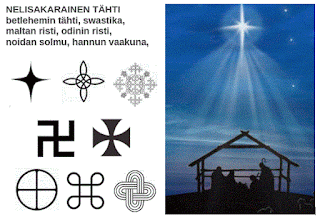Luke 1:30: "Mary: for thou hast found favor with God."
Luke 2:40: "filled with wisdom: and the grace of God was upon him."
Luke 2:52: "and stature, and in favor with God and man."
Luke 4:22: "and wondered at the gracious words which proceeded out of"
Luke 6:32: "them which love you, what thank have ye? for sinners"
Luke 6:33: "to them which do good to you, what thank have ye? for sinners"
Luke 6:34: "ye hope to receive, what thank have ye? for sinners"
Luke 17:9: " Doth he thank that servant because he did the things that were commanded"
John 1:14: "of the Father,) full of grace and truth."
John 1:16: "we received, and grace for grace."
John 1:17: "was given by Moses, but grace and truth came by"
Acts 2:47: "God, and having favor with all the people."
Acts 4:33: "Jesus: and great grace was upon them all."
Acts 7:10: "and gave him favor and wisdom in the sight of Pharaoh"
Acts 7:46: "Who found favor before God, and desired to find"
Acts 11:23: "and had seen the grace of God, was glad, and exhorted"
Acts 13:43: "them to continue in the grace of God."
Acts 14:3: "unto the word of his grace, and granted signs and"
Acts 14:26: "they had been recommended to the grace of God for the work"
Acts 15:11: "we believe that through the grace of the Lord Jesus Christ"
Acts 15:40: "the brethren unto the grace of God."
Acts 18:27: "them much which had believed through grace:"
Acts 20:24: "Jesus, to testify the gospel of the grace of God."
Acts 20:32: "to the word of his grace, which is able to build you up, and to give"
Acts 24:27: "and Felix, willing to show the Jews a pleasure, left"
Acts 25:3: "And desired favor against him, that he would send for him to"
Acts 25:9: "to do the Jews a pleasure, answered Paul, and said, Wilt"
Romans 1:5: "By whom we have received grace and apostleship, for obedience"
Romans 1:7: "of God, called to be saints: Grace to you and peace from"
Romans 3:24: "Being justified freely by his grace through the redemption that"
Romans 4:4: "not reckoned of grace, but of debt."
Romans 4:16: "it is of faith, that it might be by grace; to the end the promise might be"
Romans 5:2: "by faith into this grace wherein we stand, and"
Romans 5:15: "much more the grace of God, and the gift by grace, which is by one man, Jesus"
Romans 5:17: "more they which receive abundance of grace and of the gift of righteousness"
Romans 5:20: "where sin abounded, grace did much more abound:"
Romans 5:21: "death, even so might grace reign through righteousness unto"
Romans 6:1: "Shall we continue in sin, that grace may abound?"
Romans 6:14: "the law, but under grace."
Romans 6:15: "the law, but under grace? God forbid."
Romans 6:17: "But God be thanked, that ye were the servants of sin, but"
Romans 11:5: "a remnant according to the election of grace."
Romans 11:6: "And if by grace, then is it no more of works: otherwise grace is no more grace. But if it be of works, then is it no more grace: otherwise work is no more"
Romans 12:3: "I say, through the grace given unto me, to every man that is"
Romans 12:6: "differing according to the grace that is given to us, whether prophecy,"
Romans 15:15: "as putting you in mind, because of the grace that is given to me"
Romans 16:20: "feet shortly. The grace of our Lord Jesus"
Romans 16:24: "The grace of our Lord Jesus Christ be with you"
1 Corinthians 1:3: " Grace be unto you, and peace, from God our Father,"
1 Corinthians 1:4: "on your behalf, for the grace of God which is given you"
1 Corinthians 3:10: "According to the grace of God which is given unto me, as a wise"
1 Corinthians 10:30: "For if I by grace be a partaker, why am I evil spoken of for"
1 Corinthians 15:10: "But by the grace of God I am what I am: and his"
1 Corinthians 15:10: "I am: and his grace which was bestowed upon me was"
1 Corinthians 15:10: "I, but the grace of God which was with me."
1 Corinthians 15:57: "But thanks be to God, which giveth us the victory through"
1 Corinthians 16:3: "them will I send to bring your liberality unto Jerusalem."
1 Corinthians 16:23: "The grace of our Lord Jesus Christ be with you."
2 Corinthians 1:2: " Grace be to you and peace from God our Father,"
2 Corinthians 1:12: "wisdom, but by the grace of God, we have had our conversation in the"
2 Corinthians 1:15: "that ye might have a second benefit;"
2 Corinthians 2:14: "Now thanks be unto God, which always causeth us to triumph in Christ,"
2 Corinthians 4:15: "are for your sakes, that the abundant grace might through the thanksgiving"
2 Corinthians 6:1: "receive not the grace of God in vain."
2 Corinthians 8:1: "brethren, we do you to wit of the grace of God bestowed on"
2 Corinthians 8:4: "that we would receive the gift, and take upon us the fellowship of the"
2 Corinthians 8:6: "you the same grace also."
2 Corinthians 8:7: "ye abound in this grace also."
2 Corinthians 8:9: "For ye know the grace of our Lord Jesus Christ,"
2 Corinthians 8:16: "But thanks be to God, which put the same earnest care into"
2 Corinthians 8:19: "us with this grace, which is administered by us to"
2 Corinthians 9:8: "And God is able to make all grace abound toward you;"
2 Corinthians 9:14: "for the exceeding grace of God in you."
2 Corinthians 9:15: " Thanks be unto God for his unspeakable gift."
2 Corinthians 12:9: "he said unto me, My grace is sufficient for thee: for my"
2 Corinthians 13:14: "The grace of the Lord Jesus Christ, and the"
Galatians 1:3: " Grace be to you and peace from God the Father, and"
Galatians 1:6: "him that called you into the grace of Christ unto another gospel:"
Galatians 1:15: "called me by his grace,"
Galatians 2:9: "pillars, perceived the grace that was given unto me, they gave to me"
Galatians 2:21: "I do not frustrate the grace of God: for if righteousness"
Galatians 5:4: "by the law; ye are fallen from grace."
Galatians 6:18: "Brethren, the grace of our Lord Jesus Christ be with"
Ephesians 1:2: " Grace be to you, and peace, from God our Father,"
Ephesians 1:6: "the praise of the glory of his grace, wherein he hath made us accepted"
Ephesians 1:7: "to the riches of his grace;"
Ephesians 2:5: "in sins, hath quickened us together with Christ, by (grace ye are saved;)"
Ephesians 2:7: "exceeding riches of his grace in his kindness toward us"
Ephesians 2:8: "For by grace are ye saved through faith; and that"
Ephesians 3:2: "of the dispensation of the grace of God which is given me to"
Ephesians 3:7: "to the gift of the grace of God given unto me by"
Ephesians 3:8: "of all saints, is this grace given, that I should preach among the"
Ephesians 4:7: "one of us is given grace according to the measure of the"
Ephesians 4:29: "use of edifying, that it may minister grace unto the hearers."
Ephesians 6:24: " Grace be with all them that love our Lord Jesus Christ"
Philippians 1:2: " Grace be unto you, and peace, from God our Father,"
Philippians 1:7: "are partakers of my grace."
Philippians 4:23: "The grace of our Lord Jesus Christ be with you"
Colossians 1:2: "Christ which are at Colosse: Grace be unto you, and peace, from"
Colossians 1:6: "ye heard of it, and knew the grace of God in truth:"
Colossians 3:16: "songs, singing with grace in your hearts to the"
Colossians 4:6: "speech be always with grace, seasoned with salt, that ye may know how"
Colossians 4:18: "Remember my bonds. Grace be with you. Amen."
1 Thessalonians 1:1: "in the Lord Jesus Christ: Grace be unto you, and peace, from"
1 Thessalonians 5:28: "The grace of our Lord Jesus Christ be with you."
2 Thessalonians 1:2: " Grace unto you, and peace, from God our Father"
2 Thessalonians 1:12: "him, according to the grace of our God and the Lord"
2 Thessalonians 2:16: "good hope through grace,"
2 Thessalonians 3:18: "The grace of our Lord Jesus Christ be with you"
1 Timothy 1:2: "son in the faith: Grace, mercy, and peace, from God"
1 Timothy 1:12: "And I thank Christ Jesus our Lord, who hath enabled"
1 Timothy 1:14: "And the grace of our Lord was exceeding abundant with faith"
1 Timothy 6:21: "concerning the faith. Grace be with thee. Amen."
2 Timothy 1:2: "To Timothy, my dearly beloved son: Grace, mercy, and peace, from God"
2 Timothy 1:3: " I thank God, whom I serve from my forefathers with"
2 Timothy 1:9: "to his own purpose and grace, which was given us in Christ"
2 Timothy 2:1: "be strong in the grace that is in Christ Jesus."
2 Timothy 4:22: "be with thy spirit. Grace be with you. Amen."
Titus 1:4: "after the common faith: Grace, mercy, and peace, from God"
Titus 2:11: "For the grace of God that bringeth salvation hath appeared to all men,"
Titus 3:7: "That being justified by his grace, we should be made heirs according to the hope"
Titus 3:15: "us in the faith. Grace be with you all. Amen."
Philemon 1:3: " Grace to you, and peace, from God our Father"
Philemon 1:7: "For we have great joy and consolation in thy"
Philemon 1:25: "The grace of our Lord Jesus Christ be with your"
Hebrews 2:9: "crowned with glory and honor; that he by the grace of God should taste"
Hebrews 4:16: "boldly unto the throne of grace, that we may obtain mercy,"
Hebrews 4:16: "we may obtain mercy, and find grace to help in time of need."
Hebrews 10:29: "and hath done despite unto the Spirit of grace?"
Hebrews 12:15: "fail of the grace of God; lest any root"
Hebrews 12:28: "a kingdom which cannot be moved, let us have grace, whereby we may serve God"
Hebrews 13:9: "that the heart be established with grace; not with meats, which have not"
Hebrews 13:25: " Grace be with you all. Amen."
James 4:6: "But he giveth more grace. Wherefore he saith, God resisteth"
James 4:6: "the proud, but giveth grace unto the humble."
1 Peter 1:2: "of the blood of Jesus Christ: Grace unto you, and peace, be multiplied."
1 Peter 1:10: "who prophesied of the grace that should come unto you:"
1 Peter 1:13: "to the end for the grace that is to be brought unto you at the revelation"
1 Peter 2:19: "For this is thankworthy, if a man for conscience toward God"
1 Peter 2:20: "suffer for it, ye take it patiently, this is acceptable with God."
1 Peter 3:7: "and as being heirs together of the grace of life; that your prayers be not"
1 Peter 4:10: "as good stewards of the manifold grace of God."
1 Peter 5:5: "the proud, and giveth grace to the humble."
1 Peter 5:10: "the God of all grace, who hath called us unto his"
1 Peter 5:12: "testifying that this is the true grace of God wherein"
2 Peter 1:2: " Grace and peace be multiplied unto you through the knowledge of God,"
2 Peter 3:18: "But grow in grace, and in the knowledge of our Lord"
2 John 1:3: " Grace be with you, mercy, and peace, from God"
Jude 1:4: "condemnation, ungodly men, turning the grace of our God into"
Revelation 1:4: "which are in Asia: Grace be unto you, and peace, from"
Revelation 22:21: "The grace of our Lord Jesus Christ be with you"















